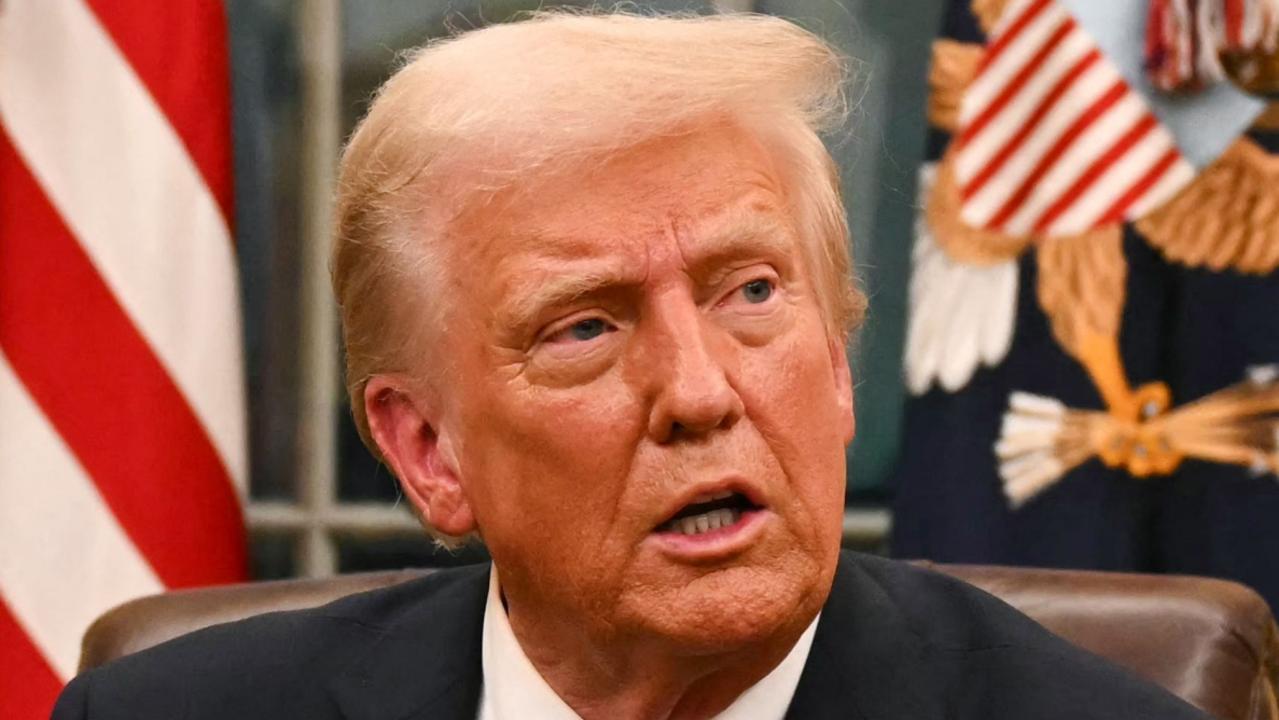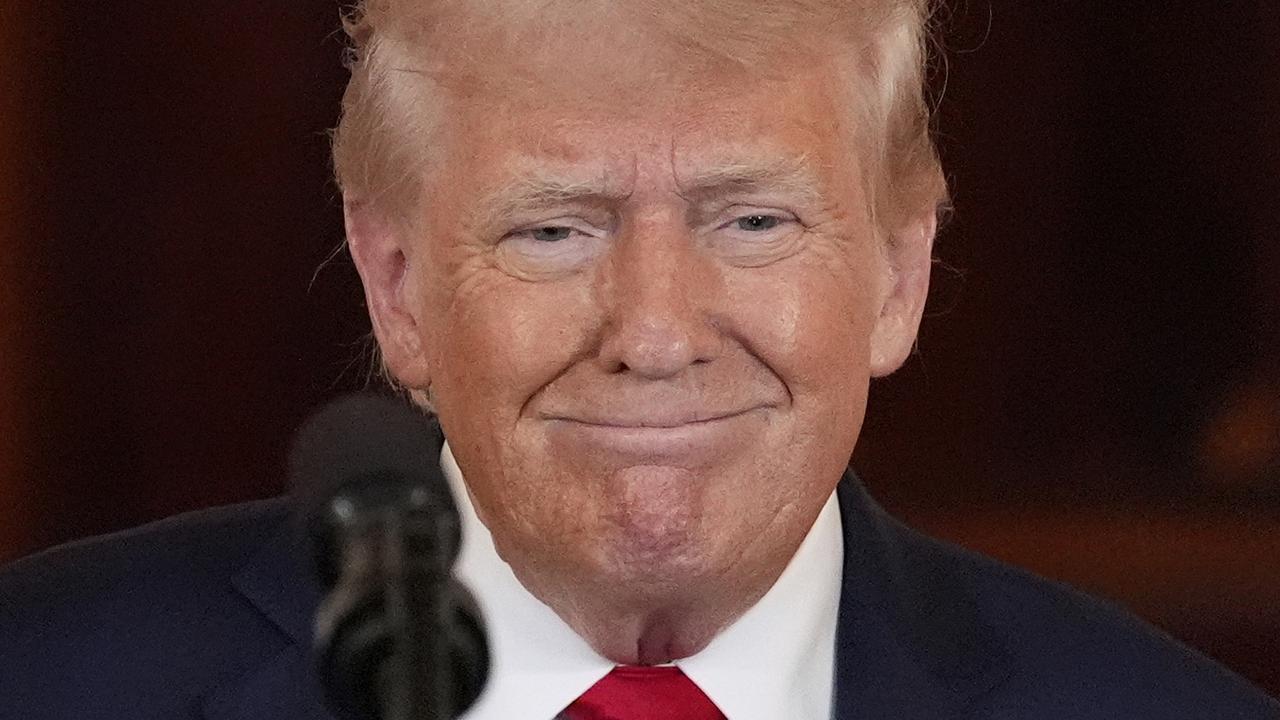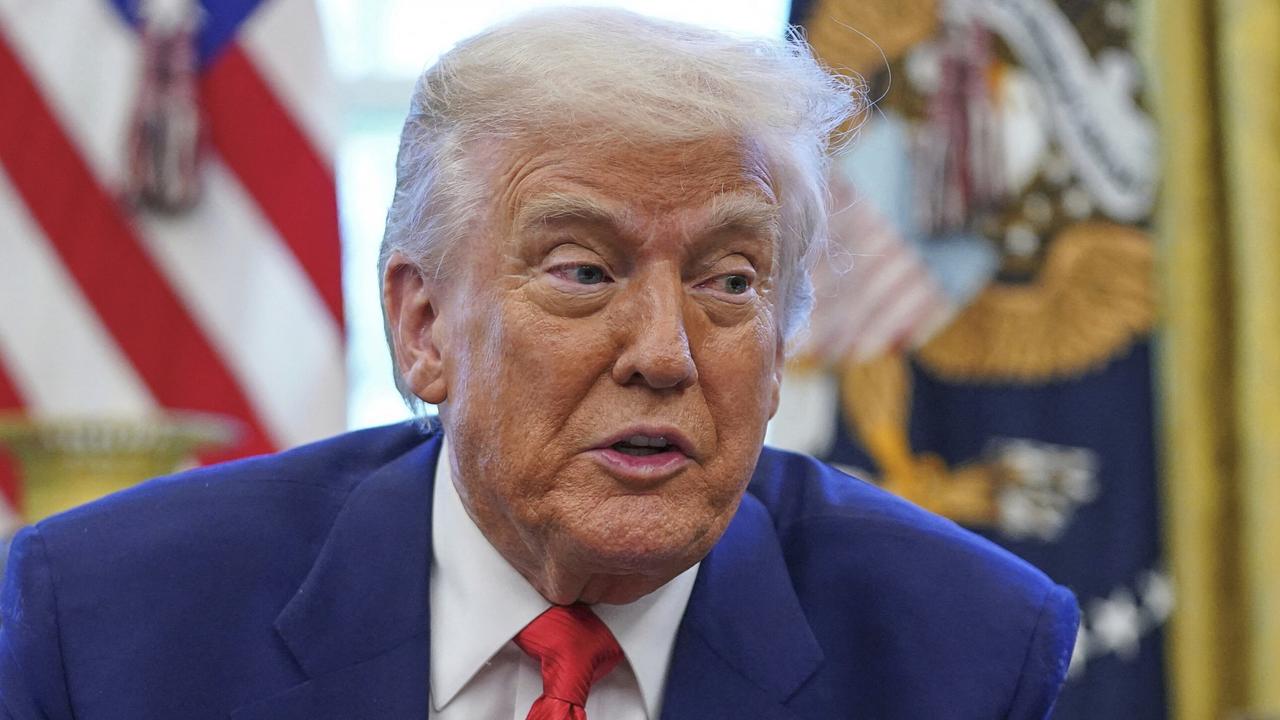Donald Trump says he will impose tariffs on China, Canada and Mexico
Donald Trump has revealed huge tariffs for three nations and it has had an immediate effect on Australia.
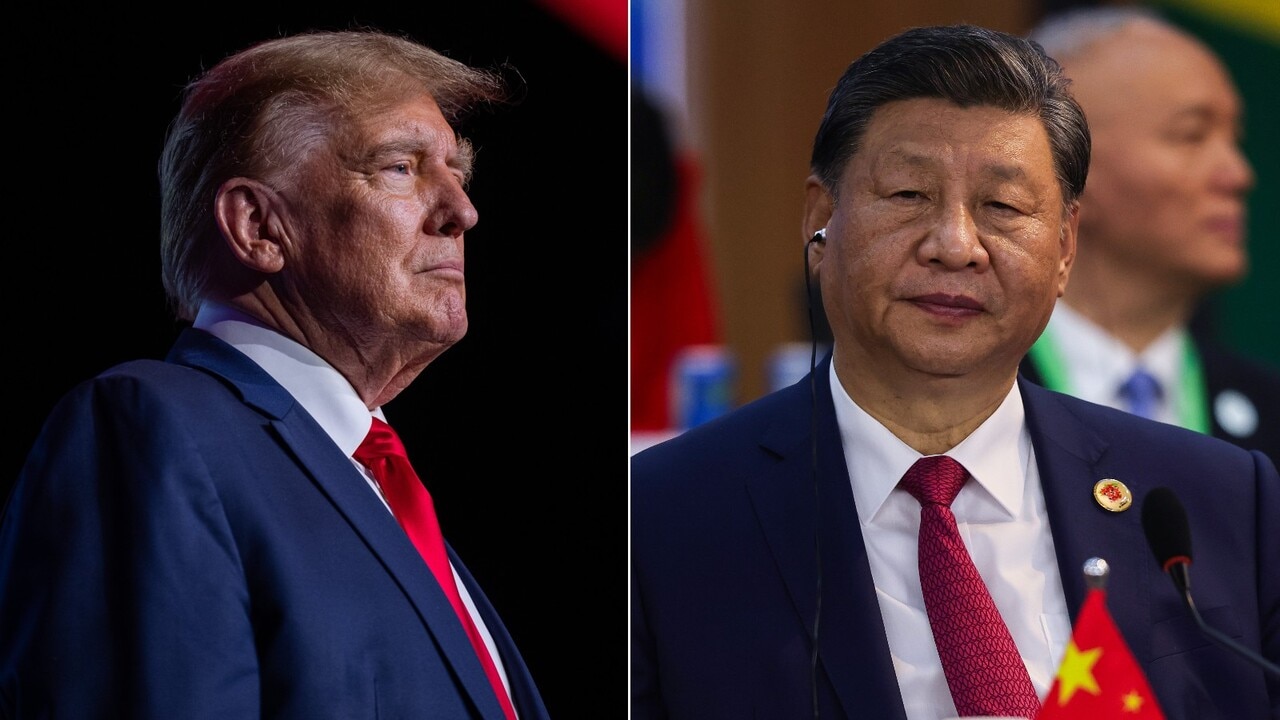
There are ominous signs for Australia as Donald Trump revealed he will impose tariffs on all products coming into the United States from China, Mexico and Canada.
The Australian dollar slid to its lowest level in seven months while billions of dollars were wiped from the ASX shortly after the US president-elect took to his social media platform Truth Social to share his plans just after 10.30am AEDT on Tuesday.
The 78-year-old, who won the US election this month against Vice President Kamala Harris, said he would impose a 25 per cent tariff on products from Mexico and Canada, and an additional 10 per cent tariff on products from China.
He claimed it would be one of “many first Executive Orders” signed on January 20 next year – the inauguration of Mr Trump as the 47th president of the US.
The Aussie dollar lost half a cent immediately after Trump’s posts, but gradually recovered through afternoon trade. But the ASX200, which opened around record highs on Tuesday, lost 0.73 per cent by the end of the day.
Banks were particularly badly hit. Commonwealth Bank for example took a brutal 3.55 per cent dive after it soared to an all-time high on Monday.
China hits back
China has since warned that “no one will win a trade war”.
“China believes that China-US economic and trade cooperation is mutually beneficial in nature,” Liu Pengyu, a spokesman for China’s embassy in the United States, said in an email to AFP.
Canada meanwhile said it was “essential” to American energy supply.
“Our relationship today is balanced and mutually beneficial, particularly for American workers,” Deputy Prime Minister Chrystia Freeland and Public Safety Minister Dominic LeBlanc said in the joint statement, adding that Ottawa would “continue to discuss these issues with the incoming administration”.
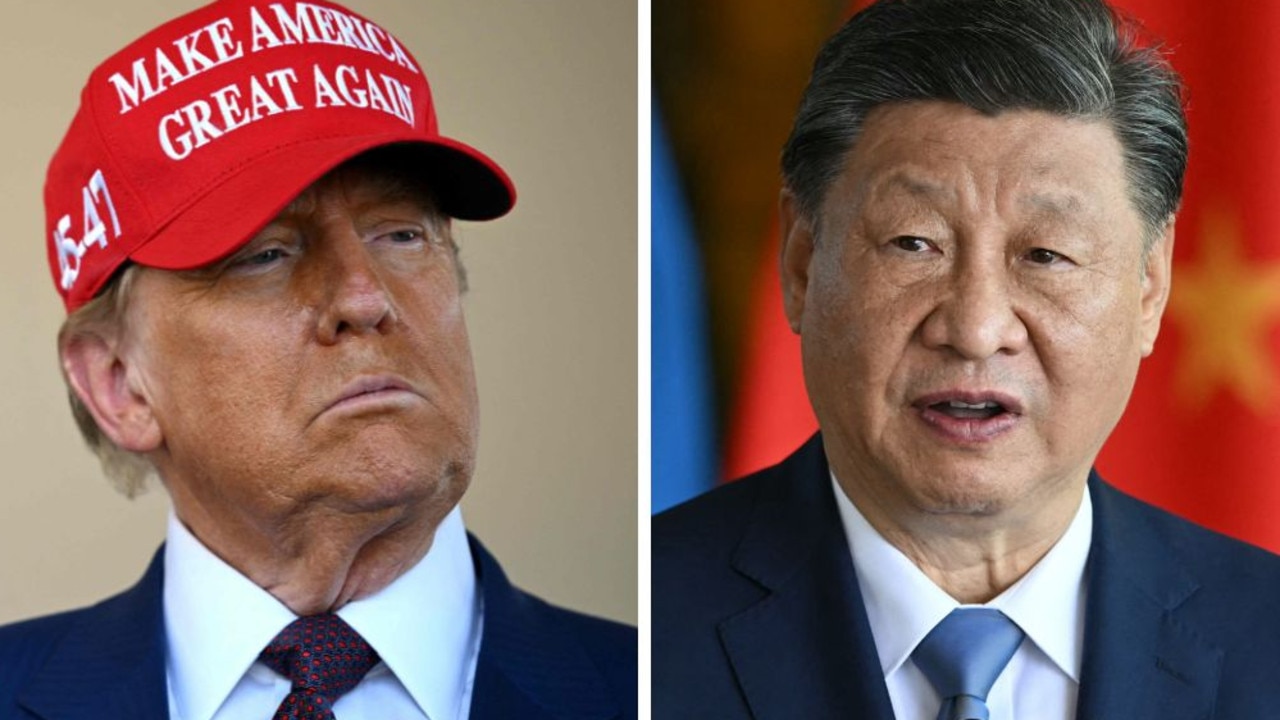
MORE: Ivanka reveals ‘hurtful toll’ behind Trump snub
He cited Chinese-made fentanyl as his reasoning for additional tariffs on goods from the Asian country.
“I have had many talks with China about the massive amounts of drugs, in particular Fentanyl, being sent into the United States – But to no avail,” Mr Trump wrote.
“Representatives of China told me that they would institute their maximum penalty, that of death, for any drug dealers caught doing this but, unfortunately, they never followed through, and drugs are pouring into our Country, mostly through Mexico, at levels never seen before.”
Mr Trump blamed unauthorised immigration, “crime and drugs” for the tariffs on goods from bordering countries Mexico and Canada.
“This Tariff will remain in effect until such time as Drugs, in particular Fentanyl, and all Illegal Aliens stop this Invasion of our Country!” he wrote.
“Both Mexico and Canada have the absolute right and power to easily solve this long simmering problem. We hereby demand that they use this power, and until such time that they do, it is time for them to pay a very big price!”
Scott Bessent, the billionaire who Mr Trump named as his Treasury secretary last week, wrote an opinion piece for Fox News the week prior referring to tariffs as a negotiating tool.
He said tariffs were historically “a revenue-raising tool and a way of protecting strategically important industries” in the country.
“President-elect Trump has added a third leg to the stool: tariffs as a negotiating tool with our trading partners,” he claimed.

MORE:High roller Trump kids’ multimillion dollar digs
Mr Bessent further described tariffs as a “useful tool for achieving the president’s foreign policy objectives”.
“Whether it is getting allies to spend more on their own defense, opening foreign markets to US exports, securing cooperation on ending illegal immigration and interdicting fentanyl trafficking, or deterring military aggression, tariffs can play a central role,” he wrote.
What is fentanyl?
Fentanyl is a highly potent synthetic opioid which can be prescribed by doctors to treat severe pain.
It is up to 50 times stronger than heroin and 100 times stronger than morphine, according to the US Centers for Disease Control and Prevention.
Illegally made fentanyl in powder form can be mixed with drugs like heroin, cocaine, and methamphetamine, making the drugs “cheaper, more powerful, more addictive, and more dangerous,” the CDC states. Many people may be unaware that their drugs contain illegally made fentanyl.
US officials tallied about 12,247 kilograms of fentanyl seized at the border in the 2024 government budget year, compared with 1154 kilograms in 2019, when Mr Trump was president, the Associated Press reported.
Why is Trump’s plan controversial?
Many economists have warned that tariffs would hurt growth and push up inflation, since they are primarily paid by importers bringing the goods into the US, who often pass those costs on to consumers.
But those in Mr Trump’s inner circle have insisted that the tariffs are a useful bargaining chip for the US to push its trading partners to agree to more favourable terms, and to bring back manufacturing jobs from overseas.
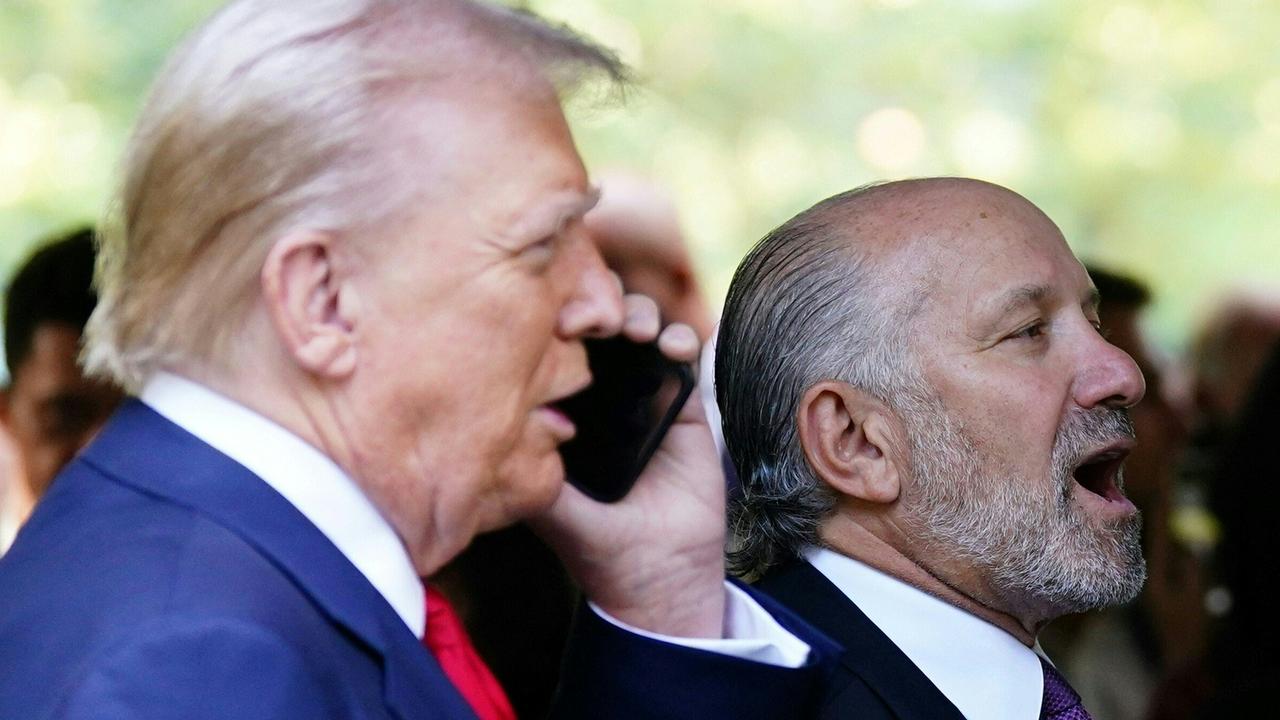
Mr Trump has said he will put his commerce secretary designate Howard Lutnick, a China hawk, in charge of trade policy.
Mr Lutnick has expressed support for a tariff level of 60 per cent on Chinese goods alongside a 10 per cent tariff on all other imports.
William Reinsch, senior adviser at the Center for Strategic and International Studies, said that that move was classic Trump: “threaten, and then negotiate.”
“In terms of what might actually happen, I’d bet on some China tariffs going into effect. That’s legally easier and politically more palatable,’ he said.
“On Canada and Mexico there was going to be a renegotiation of their trade deal (the USMCA) anyway in 2026.”
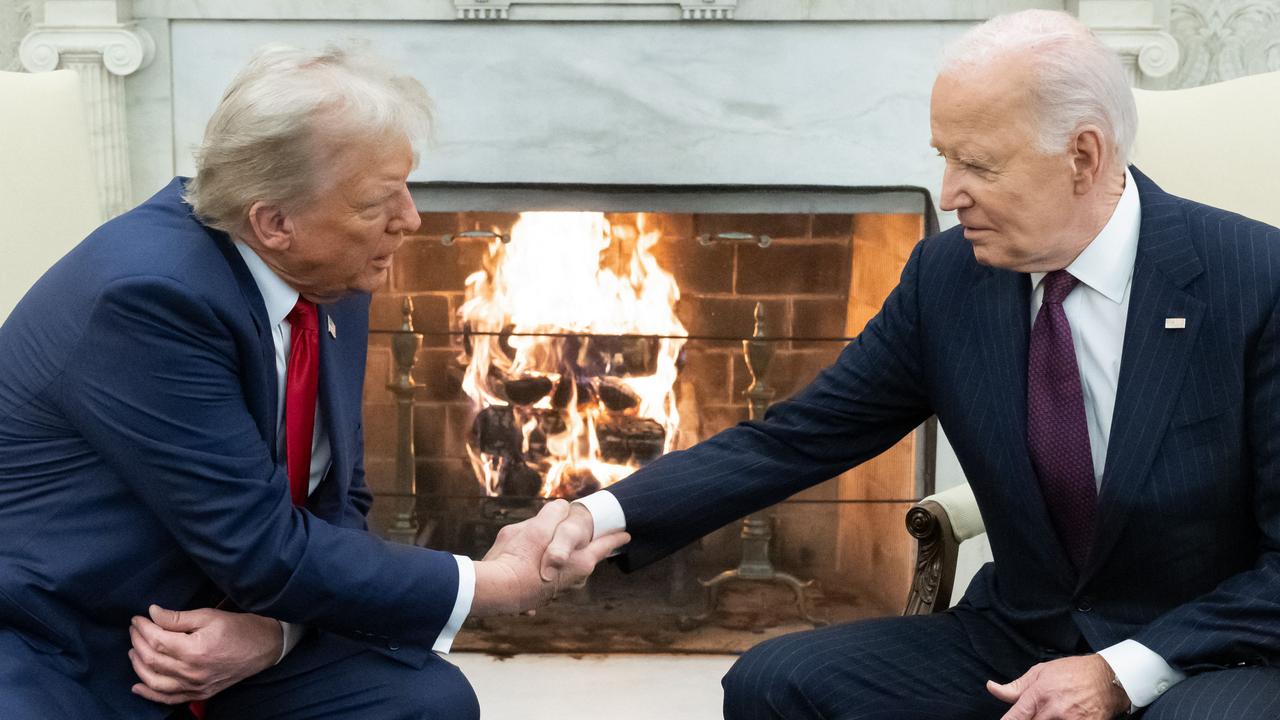
What happened under Trump’s first term?
Mr Trump’s first term in the White House was marked by an aggressive and protectionist trade agenda that also targeted China, Mexico and Canada, as well as Europe.
While in the White House, Mr Trump launched an all-out trade war with China, imposing significant tariffs on hundreds of billions of dollars of Chinese goods.
At the time he cited unfair trade practices, intellectual property theft, and the trade deficit as justifications.
China responded with retaliatory tariffs on American products, particularly affecting US farmers.
The US, Mexico and Canada are tied to a three-decade-old free trade agreement, now called the USMCA, that was renegotiated under Mr Trump after he complained that the US businesses, especially automakers, were losing out.
“Mexico and Canada remain heavily dependent on the US market so their ability to walk away from President-elect Trump’s threats remains limited,” Wendy Cutler, vice president at the Asia Society Policy Institute, and former US trade official, told AFP.
By citing the fentanyl crisis and illegal immigration, Mr Trump appeared to be citing national security concerns as a means to break that deal, something that is usually allowed under the rules set by the World Trade Organisation or in trade deals.
But most countries and the WTO treat national security exceptions as something to be used sparingly, not as a routine tool of trade policy.
Mr Trump in 2018 cited national security justifications to impose tariffs on steel and aluminium imports that targeted close allies like Canada, Mexico, and the European Union.
This led to retaliatory measures from the trading partners.
– with AFP




